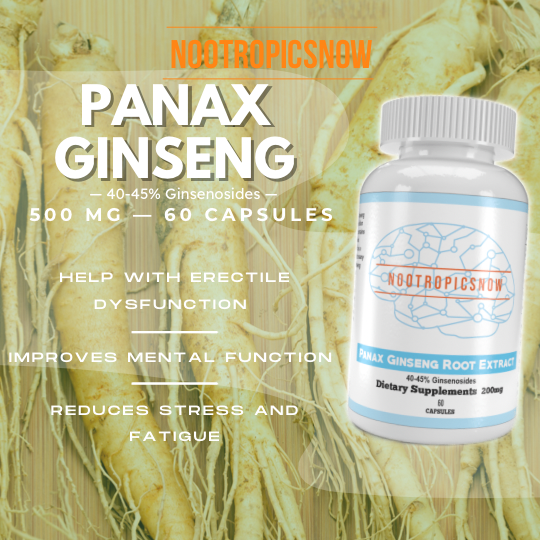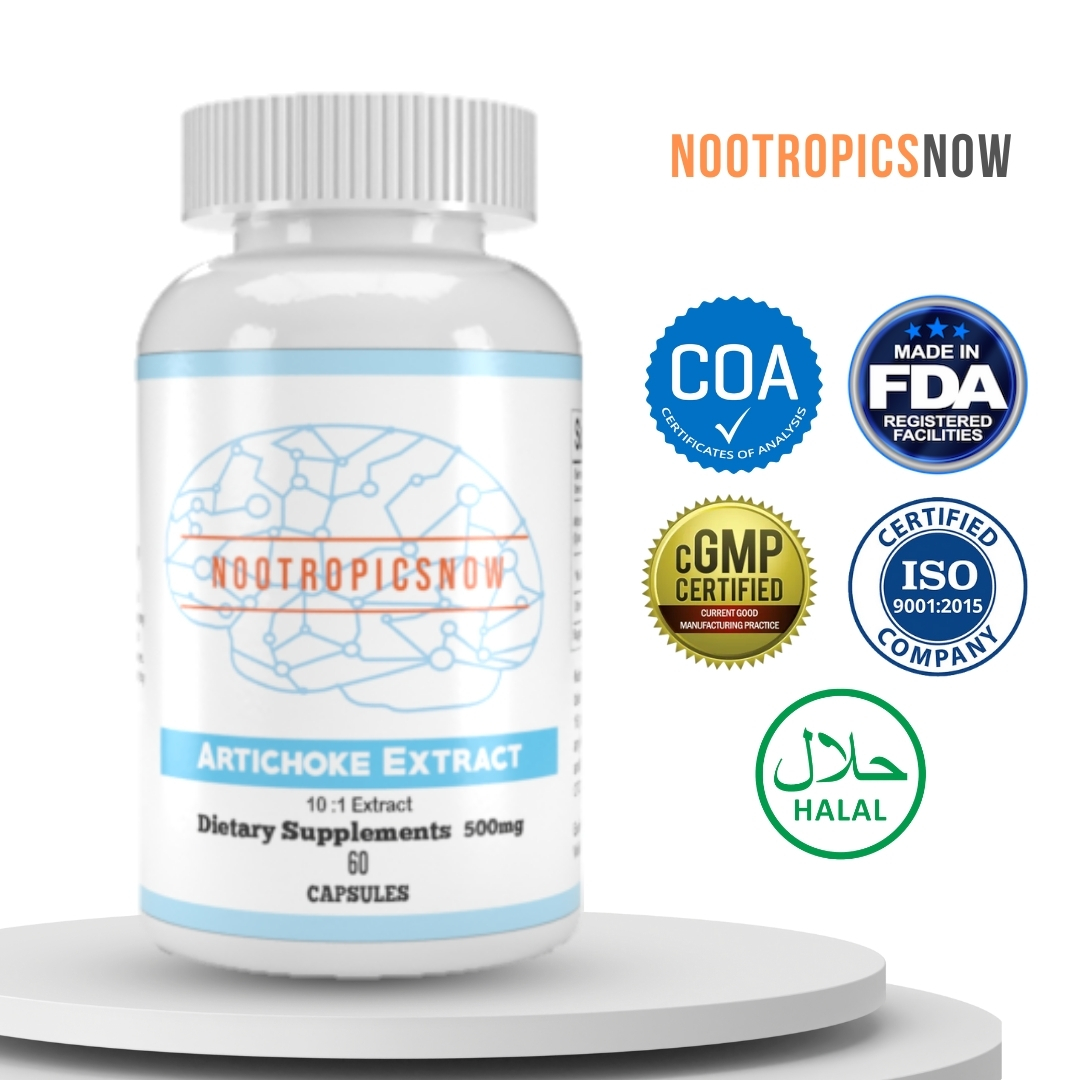Reishi Mushroom Examine: Benefits & Uses

`markdown
Reishi Mushroom Examine: Benefits, Uses, and Considerations
Reishi mushroom, scientifically known as Ganoderma lucidum, holds a significant place in traditional medicine, especially across Asian countries like China, Japan, and Korea. This medicinal fungus has been used for thousands of years, revered for its potential health-promoting properties. In this comprehensive examination, we will explore the various facets of reishi mushrooms, including their composition, purported benefits, potential side effects, and different forms of consumption.
Understanding Reishi Mushroom: A Botanical Overview
Ganoderma lucidum, a member of the polypore family, grows on decaying logs and tree stumps, primarily in humid, warm climates. The appearance of reishi is distinctive, with a kidney-shaped cap that exhibits a glossy, varnished surface, often ranging in color from reddish-brown to black. The term “lucidum” itself refers to this shiny or glossy appearance. Furthermore, wild reishi mushrooms are rare, making cultivation methods essential for consistent availability and research.
The Historical Significance of Reishi
Reishi’s historical importance is deeply rooted in Eastern cultures. It is commonly depicted in ancient artwork and literature, symbolizing longevity, health, and spiritual attainment. In traditional Chinese medicine (TCM), reishi is classified as a superior herb, meaning it can be consumed regularly without side effects, promoting overall well-being. The ancient text, the Shennong Ben Cao Jing, documented its purported benefits for enhancing “life force” and promoting longevity.
Modern Cultivation Techniques
Due to the rarity of wild reishi, commercial cultivation has become widespread. Cultivation methods typically involve growing the mushroom on hardwood logs or sawdust supplemented with nutrients. Modern techniques allow for controlled environments, optimizing growth conditions and ensuring consistent quality. Subsequently, this has made reishi more accessible to researchers and consumers alike.
Bioactive Compounds and Their Potential

The purported health benefits of reishi mushroom are attributed to its complex chemical composition. This includes a variety of bioactive compounds, such as polysaccharides, triterpenes, sterols, and various minerals. Each of these components contributes to the overall therapeutic potential of reishi.
Polysaccharides: Immune Modulators
Polysaccharides are complex carbohydrates and are among the most studied compounds in reishi mushrooms. They consist of long chains of sugar molecules linked together. Moreover, specific types of polysaccharides, especially beta-glucans, exhibit significant immunomodulatory effects. These compounds can stimulate the immune system, enhancing the activity of immune cells like macrophages, natural killer cells, and T-cells. Consequently, the improved immune cell function can aid the body in fighting infections and preventing disease.
Triterpenes: Anti-Inflammatory Agents
Triterpenes are another crucial class of compounds found in reishi mushrooms. These are responsible for the mushroom’s bitter taste. Furthermore, triterpenes exhibit a wide range of pharmacological activities, including anti-inflammatory, antioxidant, and anti-tumor effects. They may also help regulate blood pressure and cholesterol levels, contributing to cardiovascular health. Certain triterpenes, such as ganoderic acids, have demonstrated the ability to inhibit the growth of cancer cells in laboratory studies. Therefore, these compounds are promising candidates for further investigation in cancer research.
Other Bioactive Components
In addition to polysaccharides and triterpenes, reishi contains other beneficial components, including sterols, which are similar to cholesterol and can help regulate hormone balance, and various minerals like selenium and zinc, which are important for immune function and overall health. These components, while present in smaller amounts, contribute synergistically to the overall therapeutic potential of reishi mushroom.
Exploring the Reported Health Benefits of Reishi Mushroom
Reishi mushroom has been associated with a multitude of potential health benefits. These benefits span a wide range of physiological functions, including immune support, cardiovascular health, stress reduction, and sleep improvement. It’s important to note that many of these claims are based on preliminary research and traditional use. Therefore, further rigorous scientific studies are needed to fully validate these effects.
Immune System Enhancement
One of the most well-known and researched benefits of reishi mushroom is its purported ability to modulate the immune system. Research suggests that reishi can enhance immune cell activity, improving the body’s ability to fight off infections. Studies have shown that reishi polysaccharides can increase the production of cytokines, signaling molecules that help regulate immune responses. For instance, some research indicates that reishi may be beneficial for individuals with weakened immune systems, such as those undergoing cancer treatment. Nevertheless, it is essential to consult with a healthcare professional before using reishi as an adjunctive therapy.
Potential Anti-Cancer Properties
Reishi mushroom has garnered attention for its potential anti-cancer properties. Several in vitro and in vivo studies have shown that certain compounds in reishi, particularly triterpenes and polysaccharides, can inhibit the growth and spread of cancer cells. Some studies suggest that reishi can induce apoptosis (programmed cell death) in cancer cells and prevent angiogenesis (the formation of new blood vessels that feed tumors). However, it is essential to acknowledge that these findings are preliminary, and more human clinical trials are needed to confirm these effects. Thus far, reishi is not considered a primary cancer treatment but may have potential as a complementary therapy.
Stress Reduction and Anxiety Relief
Reishi mushroom is often promoted as an adaptogen, a substance that helps the body adapt to stress. Traditional medicine practices have long valued its calming effects, promoting relaxation and reducing anxiety. Some studies suggest that reishi can modulate the hypothalamic-pituitary-adrenal (HPA) axis, the body’s primary stress response system, helping to regulate cortisol levels. While the evidence is still emerging, many individuals report feeling calmer and more balanced after incorporating reishi into their daily routine. Furthermore, reishi’s potential to improve sleep quality may also contribute to its stress-reducing effects.

View Product
Improved Sleep Quality
Reishi mushroom has been traditionally used as a sleep aid, promoting relaxation and improving sleep quality. Although the exact mechanisms are not fully understood, it is believed that reishi can interact with neurotransmitter systems in the brain, such as GABA, which plays a role in promoting sleep and reducing anxiety. Several studies have investigated the effects of reishi on sleep, with some showing promising results in improving sleep duration and reducing sleep latency (the time it takes to fall asleep). In particular, studies have focused on its potential to improve sleep quality in individuals with insomnia or other sleep disorders. However, larger and more rigorously designed trials are needed to confirm these findings.

View Product
Cardiovascular Health Support
Research suggests that reishi mushroom may have beneficial effects on cardiovascular health. Some studies indicate that reishi can help lower blood pressure and improve cholesterol levels. Triterpenes in reishi may help inhibit the angiotensin-converting enzyme (ACE), which plays a role in regulating blood pressure. Additionally, reishi may help reduce LDL (“bad”) cholesterol and increase HDL (“good”) cholesterol. Furthermore, its antioxidant properties can protect against oxidative damage to blood vessels, contributing to overall cardiovascular health. However, more research is needed to fully understand the mechanisms and extent of these benefits.
Liver Protection
Reishi mushroom has traditionally been used to support liver health. Some studies suggest that reishi can protect the liver from damage caused by toxins and inflammation. Antioxidant compounds in reishi may help neutralize free radicals, reducing oxidative stress in the liver. Additionally, reishi may promote liver cell regeneration and improve liver function. However, more research is needed to confirm these effects and determine the optimal dosage and duration of treatment.

View Product
Forms of Consumption and Dosage Guidelines
Reishi mushroom is available in various forms, each with its own advantages and considerations. These forms include fresh mushrooms, dried mushrooms, extracts (powders, capsules, and liquids), and teas. The appropriate form and dosage will depend on individual preferences, health goals, and the concentration of bioactive compounds in the product.
Fresh and Dried Mushrooms
While fresh reishi mushrooms can be consumed, they are often tough and bitter, making them less palatable. Dried reishi mushrooms are more commonly used for making teas or decoctions. To prepare a reishi tea, dried slices of the mushroom are simmered in water for an extended period (30 minutes to 2 hours) to extract the beneficial compounds. The resulting tea can be consumed warm or cooled. It’s important to note that the concentration of bioactive compounds in reishi tea can vary depending on the quality of the mushroom and the brewing time.
Reishi Extracts: Powders, Capsules, and Liquids
Reishi extracts are concentrated forms of the mushroom, typically available as powders, capsules, or liquids. Extracts are often standardized to contain a specific percentage of polysaccharides or triterpenes, ensuring consistent potency. Powdered extracts can be added to smoothies, soups, or other beverages. Capsules offer a convenient and pre-dosed option for supplementation. Liquid extracts can be taken directly or added to water or juice. When choosing a reishi extract, it is important to select a reputable brand that provides third-party testing to verify the product’s identity, purity, and potency.
Determining the Appropriate Dosage
There is no universally established dosage guideline for reishi mushroom. The optimal dosage can vary depending on individual factors such as age, weight, health status, and the specific product being used. Generally, dosages of reishi extracts range from 500 mg to 2,000 mg per day. It is often recommended to start with a lower dose and gradually increase it as tolerated. Consulting with a healthcare professional or a qualified herbalist is advisable to determine the appropriate dosage for your individual needs. They can provide personalized guidance based on your health history and current medications.
Potential Side Effects and Safety Considerations
Reishi mushroom is generally considered safe for most people when taken at recommended dosages. However, some individuals may experience mild side effects, such as digestive upset, dizziness, or skin rash. These side effects are typically temporary and resolve on their own.
Common Side Effects
The most commonly reported side effects of reishi mushroom include:
Precautions and Contraindications
Certain individuals should exercise caution or avoid reishi mushroom altogether:
Interactions with Medications
Reishi mushroom can potentially interact with certain medications, including:
It is crucial to inform your healthcare provider about all supplements you are taking, including reishi mushroom, to avoid potential interactions and ensure your safety.
Selecting High-Quality Reishi Supplements
When choosing a reishi supplement, it is essential to select a high-quality product from a reputable brand. Several factors can influence the quality of reishi supplements, including the cultivation methods, extraction processes, and quality control measures.
Identifying Reputable Brands
Look for brands that have a strong reputation for quality and transparency. Research the brand’s history, manufacturing practices, and customer reviews. Opt for brands that use organic or sustainably sourced reishi mushrooms.
Understanding Extraction Processes
The extraction process can significantly impact the concentration and bioavailability of bioactive compounds in reishi supplements. Hot water extraction is commonly used to extract polysaccharides, while alcohol extraction is used to extract triterpenes. Some products use dual extraction methods, combining both hot water and alcohol extraction to maximize the extraction of beneficial compounds.
Seeking Third-Party Testing
Choose products that have been third-party tested for identity, purity, and potency. Third-party testing ensures that the product contains the ingredients listed on the label and is free from contaminants such as heavy metals, pesticides, and other adulterants. Look for certifications from independent organizations like NSF International, USP, or ConsumerLab.com.
Checking for Standardization
Opt for reishi extracts that are standardized to contain a specific percentage of polysaccharides or triterpenes. Standardization ensures consistent potency and allows you to accurately determine the dosage.
Verifying the Source and Cultivation Methods
Inquire about the source of the reishi mushrooms and the cultivation methods used. Choose products made from reishi mushrooms that are cultivated in a controlled environment and free from pollutants. Organic certification is an added assurance of quality.
Future Research Directions
While research on reishi mushroom has shown promising results, further studies are needed to fully understand its mechanisms of action and potential therapeutic applications. Future research should focus on:
Conducting Large-Scale Human Clinical Trials
Large-scale, randomized, placebo-controlled clinical trials are needed to confirm the efficacy of reishi mushroom for various health conditions. These trials should be rigorously designed and include diverse populations to ensure the generalizability of the findings.
Investigating Specific Bioactive Compounds
Further research is needed to identify the specific bioactive compounds in reishi mushroom that are responsible for its various health benefits. This will help to develop more targeted and effective therapies.
Exploring Synergistic Effects
Investigating the synergistic effects of reishi mushroom with other herbs, supplements, or medications may lead to more effective treatment strategies.
Elucidating Mechanisms of Action
Further research is needed to elucidate the precise mechanisms of action by which reishi mushroom exerts its effects on the immune system, cardiovascular system, nervous system, and other physiological functions.
Optimizing Extraction and Delivery Methods
Developing more efficient extraction and delivery methods can improve the bioavailability and effectiveness of reishi supplements.
Conclusion: Integrating Reishi Mushroom into a Holistic Wellness Plan
Reishi mushroom is a fascinating medicinal fungus with a rich history and a growing body of scientific evidence supporting its potential health benefits. From immune support to stress reduction and cardiovascular health, reishi offers a wide range of potential therapeutic applications. By understanding the composition, benefits, and considerations associated with reishi mushroom, individuals can make informed decisions about incorporating it into their holistic wellness plan. Nevertheless, it is essential to consult with a healthcare professional before using reishi, especially if you have underlying health conditions or are taking medications. Furthermore, selecting high-quality supplements from reputable brands is crucial to ensure the product’s safety and efficacy. By combining traditional wisdom with modern scientific research, we can unlock the full potential of reishi mushroom and harness its benefits for optimal health and well-being.

View Product
`
Reishi Mushroom Examine
Reishi mushrooms, scientifically known as Ganoderma lucidum, represent a fascinating area of study within the realm of natural health and traditional medicine. Their long history of use in Eastern cultures, coupled with emerging scientific research, makes them a compelling subject for examination. This section explores the various aspects of reishi mushrooms, including their composition, potential health benefits, and safety considerations.
Understanding Reishi: More Than Just a Mushroom
Reishi is not your typical culinary mushroom; instead, it is prized for its medicinal properties. It boasts a distinctive, glossy appearance, often exhibiting a reddish-brown hue. Unlike edible mushrooms, its texture is tough and woody, making it less palatable in its raw form. Consequently, reishi is typically consumed in processed forms like extracts, powders, or teas. The key lies in unlocking the powerful bioactive compounds it contains.
Bioactive Components: The Source of Reishi’s Power
The health benefits attributed to reishi stem from its complex chemical composition. Researchers have identified several key constituents that contribute to its therapeutic effects.
Polysaccharides: Immune System Modulators
Polysaccharides are complex carbohydrates found abundantly in reishi mushrooms. These large molecules are understood to possess significant immunomodulatory properties. Essentially, they help regulate and fine-tune the immune system’s response. These polysaccharides contribute to the mushroom’s purported ability to enhance immune function and fight off infections. Moreover, certain polysaccharides, particularly beta-glucans, have demonstrated anti-tumor activity in in-vitro and in-vivo studies.
Triterpenoids: Anti-Inflammatory Powerhouses
Triterpenoids are another crucial class of compounds present in reishi. These are responsible for the mushroom’s characteristic bitter taste. However, this bitterness belies potent therapeutic potential. Triterpenoids have exhibited anti-inflammatory, antioxidant, and anti-tumor properties. Additionally, they may contribute to cardiovascular health by improving blood circulation and reducing cholesterol levels. Research suggests that certain triterpenoids can inhibit histamine release, potentially alleviating allergy symptoms.
Other Notable Compounds
Beyond polysaccharides and triterpenoids, reishi contains a variety of other bioactive compounds, including:
The synergistic interaction of these compounds likely contributes to the holistic health benefits associated with reishi consumption.
Potential Health Benefits: A Closer Look
The traditional uses of reishi mushroom are extensive, and modern research is beginning to validate some of these historical claims. While more research is needed to definitively confirm all benefits, several areas show promising results.
Immune System Enhancement
One of the most widely recognized benefits of reishi is its purported ability to enhance immune function. Studies suggest that reishi can increase the activity of various immune cells, including natural killer (NK) cells, macrophages, and T lymphocytes. These cells play critical roles in identifying and eliminating pathogens and abnormal cells. In essence, reishi may help bolster the body’s defenses against infections and diseases. Some studies have also explored reishi’s potential to modulate the immune system in individuals with autoimmune disorders, although results have been mixed and require further investigation.
Anti-Cancer Potential
Reishi’s potential role in cancer prevention and treatment is another area of intense research. Studies have indicated that certain compounds in reishi, particularly polysaccharides and triterpenoids, may exhibit anti-tumor activity. These compounds may work through various mechanisms, including:
While these findings are promising, it’s essential to emphasize that reishi is not a cure for cancer. Further clinical trials are necessary to determine its effectiveness as an adjunctive therapy for cancer patients.
Stress Reduction and Improved Sleep
Reishi is often touted as an adaptogen, a substance that helps the body cope with stress. Traditional Chinese Medicine (TCM) practitioners have long used reishi to promote calmness, reduce anxiety, and improve sleep quality. Modern research is beginning to support these traditional uses. Studies have shown that reishi may help regulate the hypothalamic-pituitary-adrenal (HPA) axis, the body’s primary stress response system. By modulating the HPA axis, reishi may help reduce cortisol levels, the stress hormone. Some research indicates that reishi may also improve sleep quality by promoting relaxation and reducing insomnia symptoms.
Cardiovascular Health
Reishi may offer benefits for cardiovascular health, primarily through its triterpenoid content. These compounds have demonstrated the ability to:
However, more robust clinical trials are needed to confirm these effects and determine the optimal dosage for cardiovascular benefits.
Neuroprotective Effects
Emerging research suggests that reishi may possess neuroprotective properties, potentially benefiting brain health. Studies have indicated that reishi compounds may:
These findings are preliminary, but they suggest that reishi may hold promise for promoting brain health and preventing age-related cognitive decline.
Forms of Reishi: Choosing the Right Option
Reishi is available in various forms, each with its own advantages and disadvantages. Understanding these differences can help you choose the option that best suits your needs.
Fresh and Dried Mushrooms
While reishi can be consumed fresh or dried, this is not the most common method. Fresh reishi is quite bitter and has a tough texture. Dried reishi is often used to make tea, but the extraction of bioactive compounds may not be as efficient as with more processed forms.
Reishi Spores
Reishi spores are the reproductive cells of the mushroom. They are rich in triterpenoids and polysaccharides. However, the spores have a hard outer shell that can be difficult to digest. Therefore, reishi spore products often undergo a process called “shell-breaking” to improve bioavailability.
Reishi Extracts
Reishi extracts are concentrated forms of the mushroom’s bioactive compounds. They are typically available in liquid, powder, or capsule form. Extracts offer a convenient way to consume a standardized dose of reishi’s beneficial compounds. Look for extracts that specify the levels of polysaccharides and triterpenoids to ensure quality and potency.

View Product
Reishi Powders
Reishi powders are made by grinding the dried mushroom into a fine powder. These powders can be added to smoothies, soups, or other foods. However, the potency of reishi powder can vary depending on the quality of the mushroom used.
Safety and Side Effects: What to Consider
Reishi mushroom is generally considered safe for most people when consumed in moderate amounts. However, some individuals may experience side effects.
Common Side Effects
Common side effects of reishi consumption can include:
These side effects are typically mild and resolve on their own.
Precautions and Contraindications
Certain individuals should exercise caution or avoid reishi altogether.
Drug Interactions
Reishi may interact with certain medications, including:
If you are taking any medications, consult with a healthcare provider before using reishi to avoid potential drug interactions.
Dosage Recommendations
There is no universally agreed-upon dosage for reishi mushroom. The appropriate dosage can vary depending on factors such as the individual’s age, health status, and the specific product being used. It is always best to start with a low dose and gradually increase it as needed, while monitoring for any side effects.
Consult with a healthcare provider for personalized dosage recommendations.
Quality Control and Sourcing
The quality of reishi products can vary significantly. It is essential to choose products from reputable manufacturers that employ strict quality control measures. Look for products that:
Researching the manufacturer’s reputation and reading customer reviews can also help you make an informed decision.
The Future of Reishi Research
Research on reishi mushroom is ongoing, and future studies are likely to further elucidate its potential health benefits and mechanisms of action. Areas of particular interest include:
As research progresses, reishi mushroom is likely to play an increasingly important role in integrative medicine and natural health. However, it is essential to approach reishi with a balanced perspective, recognizing both its potential benefits and limitations. Consulting with a healthcare provider is crucial before incorporating reishi into your health regimen.

